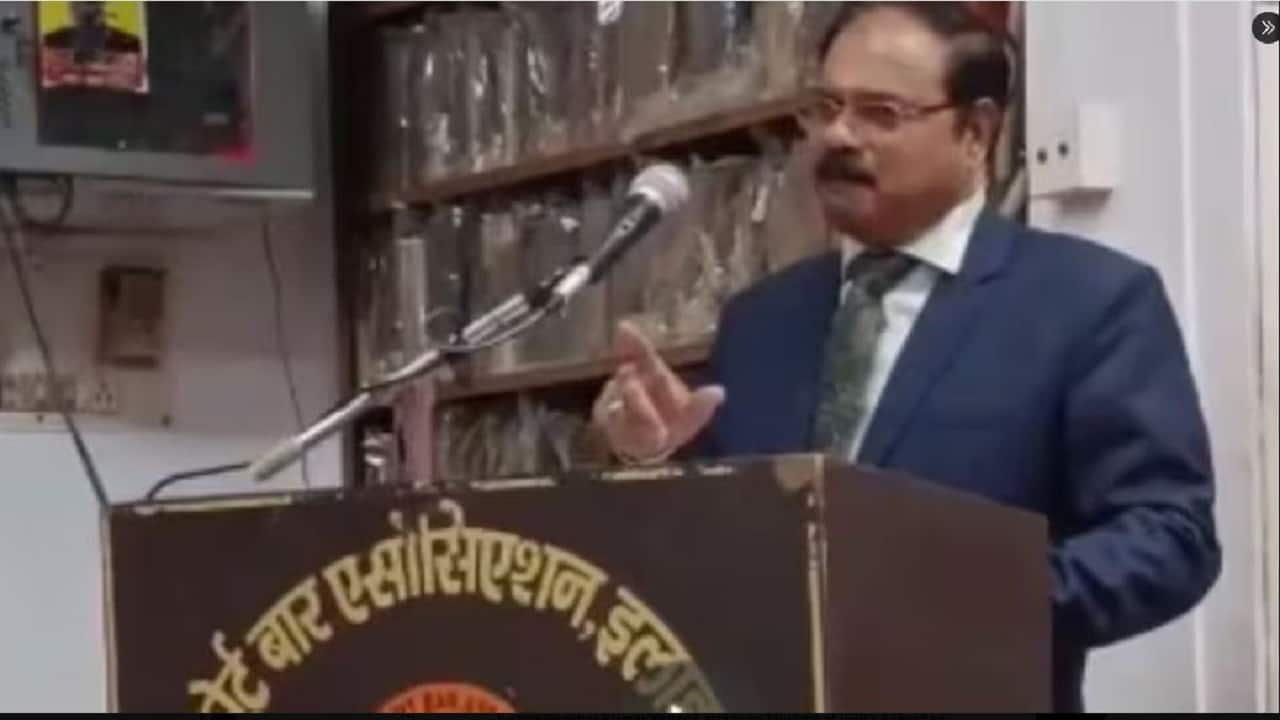 |
|
The Indian political landscape is currently embroiled in a significant legal and political battle surrounding the potential impeachment of Justice Shekhar Kumar Yadav, a judge of the Allahabad High Court. The opposition bloc, INDIA, has initiated a move to remove Justice Yadav, citing his controversial remarks made during a speech at a Vishwa Hindu Parishad (VHP) event. These remarks, widely perceived as anti-Muslim, have sparked outrage and triggered a complex constitutional process aimed at removing a sitting High Court judge. The Supreme Court's acknowledgment of reports surrounding Justice Yadav's speech further escalated the situation, highlighting the gravity of the allegations and the potential implications for the judiciary's impartiality.
Justice Yadav's speech, delivered on December 8th, focused on the Constitutional necessity of a Uniform Civil Code. However, his comments suggesting that the country should function according to the wishes of the majority and that only what benefits the majority would be accepted, have been interpreted as discriminatory and undermining the principles of secularism enshrined in the Indian Constitution. This interpretation has solidified the opposition's determination to pursue impeachment proceedings. The INDIA bloc's move comes in the wake of their recent no-confidence motion against Rajya Sabha Chairman Jagdeep Dhankar, indicating a broader strategy to challenge the ruling party's dominance and address perceived injustices.
The process of impeaching a High Court judge in India is a rigorous and arduous one, outlined in Article 218 of the Constitution, which mirrors the provisions for impeaching Supreme Court judges under Article 124(4). The grounds for impeachment are limited to 'proved misbehaviour' and 'incapacity.' This high threshold significantly raises the bar for a successful impeachment. An impeachment motion requires the signatures of a substantial number of lawmakers in both houses of Parliament – 50 in the Rajya Sabha and 100 in the Lok Sabha. Even after securing the necessary signatures, the process is far from guaranteed. The motion necessitates the formation of a three-member inquiry committee comprising a Supreme Court judge, a High Court Chief Justice, and a distinguished jurist. This committee undertakes a thorough investigation, affording the accused judge the right to present a defense and cross-examine witnesses. The committee's report, submitted to the Speaker or Chairman of Parliament, is the basis for a final vote on impeachment. The process is further complicated by the significant political hurdles, and even if all legal requirements are met, the success of the motion hinges on the political balance of power in Parliament.
A review of past attempts to impeach High Court and Supreme Court judges reveals a consistent pattern of failure. While there have been several attempts, none have successfully led to the removal of a judge. This history underscores the difficulty of navigating the constitutional and political complexities of the impeachment process. The high threshold for proving 'proved misbehaviour' or 'incapacity' and the need for bipartisan support create a considerable obstacle to removing a judge, even in cases involving serious allegations. The case of Justice Yadav highlights the delicate balance between upholding judicial accountability and protecting the independence of the judiciary. The outcome of this attempt will have significant implications for the future of judicial oversight and the ongoing political discourse in India.
The case of Justice Shekhar Kumar Yadav underscores the critical debate surrounding judicial accountability and the potential conflict between the judiciary and political interests. While the opposition argues that his comments warrant his removal, emphasizing the importance of judicial impartiality and adherence to the Constitution, the ruling party may counter with arguments about judicial independence and the potential for political interference in judicial matters. The ensuing debate will involve the careful balancing of preserving judicial independence and holding judges accountable for their actions. The ultimate outcome of the impeachment motion will depend not only on the legal proceedings but also on the prevailing political dynamics and the willingness of parliamentarians to hold a fellow judge to account for conduct deemed incompatible with the standards expected of the judiciary. The process, irrespective of the outcome, will undoubtedly shape public discourse on judicial ethics and the role of the judiciary in upholding the rule of law.
Source: Opposition pushes for Allahabad HC judge's impeachment for communal remarks: Is it possible?
